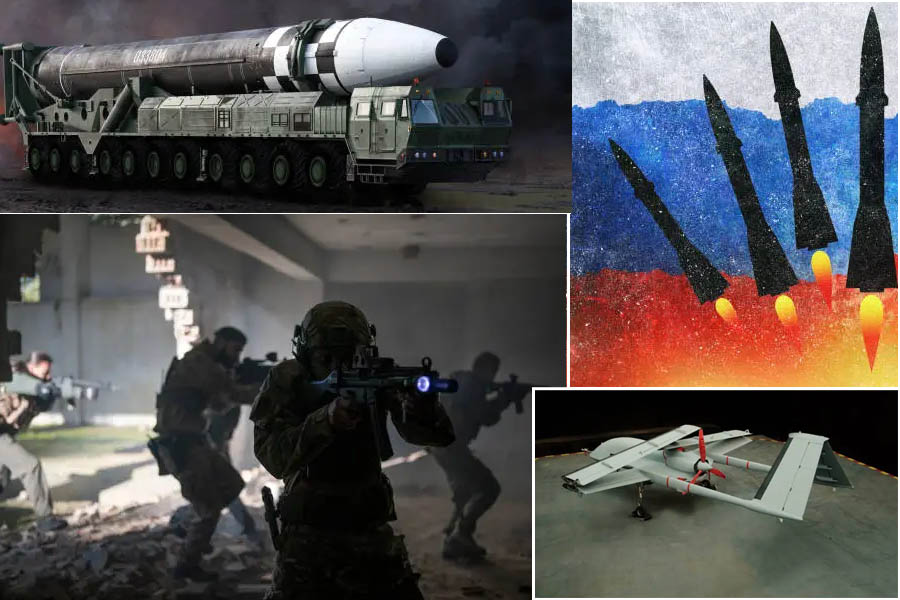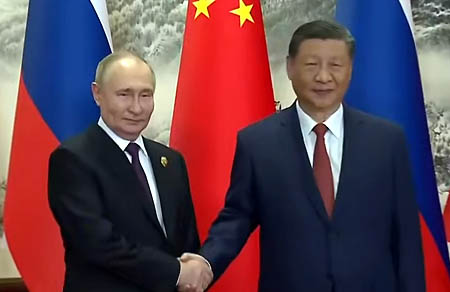
As the fog of war continues to envelop Eastern Europe, the conflict between Ukraine and Russia unfolds with a dramatic intensity that captivates and horrifies in equal measure. The stakes have never been higher, with the West and Russia engaged in a perilous game of power dynamics that holds the world’s attention. The narrative is fraught with tension, where optimism and despair dance a delicate tango. The implications of this geopolitical chess game extend far beyond borders, influencing global security, alliances, and the very fabric of international relations. With both sides making strategic moves, the question remains: Is this a prelude to a new chapter in global conflict?
Zelenskyy: Ukraine War ‘Closer to the End’ Than Many Think! 🇺🇦
In a recent interview with ABC News, Ukrainian President Volodymyr Zelenskyy declared that the war is “closer to the end than many think.” His assertion carries weight, hinting at an imminent shift in the tides of war, yet it is laced with a poignant urgency. “We are closer to the end of the war,” he states, calling upon international allies to bolster Ukraine’s military efforts. This message of hope comes at a time when the international community’s support is vital for Ukraine’s survival against an aggressive neighbor determined to redraw borders with brute force.
Zelenskyy’s optimism is both infectious and sobering. While he believes in the potential for peace, the realities on the ground suggest a far more complex scenario. Ukraine's infrastructure has suffered grievously, and reports indicate that up to 70% of its electrical grid has been damaged. This grim statistic paints a picture of a nation desperately seeking a lifeline, both militarily and diplomatically.
Rising Tensions: Japan’s Fighter Jets Fire Flares at Russian Aircraft! 🇯🇵✈️🇷🇺
Meanwhile, the geopolitical landscape grows increasingly fraught. On September 24, 2024, Japan's fighter jets fired flares at Russian reconnaissance aircraft that encroached upon its airspace. This marked a significant escalation in tensions, signaling not only Japan's resolve but also a wider regional alarm as military cooperation between Russia and China grows. Japanese Prime Minister Fumio Kishida has emphasized the necessity for a firm response, recognizing that the theater of war may extend beyond Ukraine's borders.
In a world where alliances shift like sand, Japan's actions are a reminder of the far-reaching implications of the Ukraine conflict. The message is clear: the West must unite against threats that transcend geography. But as we delve deeper, the complexities only multiply.
Voices from the Gulag: The Fall of Putin’s Regime
Vladimir Kara-Murza, a freed dissident from a Siberian gulag, offers a chilling perspective. He asserts that the collapse of the Putin regime will come swiftly and without warning, mirroring historical precedents in Russia’s tumultuous past. “That’s how things happen in Russia,” he states, reflecting a profound understanding of his country’s psyche. The stakes here are not just military but existential; a defeat for Russia in Ukraine may serve as a catalyst for a broader awakening, spurring hopes for a free and democratic Russia.
As Kara-Murza’s words echo in the corridors of power, one can’t help but wonder: Will the end of the current regime be a harbinger of peace in Europe or merely the prelude to further chaos?
America’s Long-Range Missiles: A Game-Changer for European Security
In a strategic pivot reminiscent of the Cold War, the United States plans to deploy long-range missiles to Europe by 2026, amplifying the ongoing arms race. This deployment reflects a broader shift in German security policy, igniting discussions on the implications for NATO's military posture. American missiles like the SM-6 and the Long-Range Hypersonic Weapon are poised to reshape the European defense landscape. As European nations scramble to bolster their defenses, the balance of power could tilt dramatically, creating new strategic dilemmas for both NATO and Russia.
In this high-stakes game, the roles of power and responsibility become increasingly blurred. Germany's commitment to hosting these missiles underscores the seriousness of the situation, yet it raises concerns about inadvertent escalation and the potential for miscalculations in an already volatile landscape. The Biden administration’s support for Ukraine seems unwavering, yet questions linger: Is this strategy sustainable? What happens when the tide turns, and Ukraine finds itself in a precarious position?
Putin's Nuclear Gambit: A Grim Warning
Against this backdrop of military posturing, Vladimir Putin’s recent comments regarding nuclear warfare add a chilling dimension to the conflict. His declaration that an attack from a non-nuclear state, supported by nuclear powers, would be considered a joint assault, signals a dangerous escalation. As tensions mount, Zelenskyy's request for long-range missiles could trigger a catastrophic chain reaction, inviting unprecedented consequences.
The stakes are incomprehensibly high. The possibility of a nuclear confrontation looms, a specter haunting the dreams of leaders and citizens alike. In a world fraught with uncertainty, the very notion of a “nuclear deterrent” transforms into a potential catalyst for disaster.
Zelenskyy’s Washington Visit: A Recipe for Escalation?
As President Zelenskyy prepares for a pivotal meeting with President Biden, the potential for heightened conflict looms large. The discussions surrounding missile strike targets inside Russia could lead to unprecedented military escalation. Critics argue that this approach could be the catalyst for a broader conflict, reminiscent of Cold War tensions. With nuclear threats on the table, the world watches anxiously—will this meeting pave the way for peace or plunge the region into chaos?
A Fractured Strategy: U.S. Unimpressed with Ukraine’s Victory Plan
Ahead of a critical meeting between President Biden and President Zelenskyy, U.S. officials express skepticism about Ukraine’s proposed victory strategy, viewing it as an echo of previous requests for military support. The focus on long-range missiles raises alarms about escalating the conflict further. As tensions mount, the complexities of U.S.-Ukrainian relations come into sharp focus, prompting critical discussions about the path forward. Will Ukraine's requests fall on deaf ears, or will they reignite a commitment to a robust military partnership?
The Urgency of Accountability in a World on Edge
As the world holds its breath, we are left to ponder the fate of Ukraine and the West’s role in this unfolding saga. The narrative remains fluid, teetering between hope and despair, peace and war.
What is certain is that the Ukraine-Russia conflict is not merely a regional dispute; it is a pivotal moment in history, a crucible that could reshape international relations for decades to come. As the drama unfolds, the question remains: Can the collective will of the international community pave the way for a resolution, or will we descend into a cycle of violence that engulfs not only Ukraine but the very fabric of global stability? The answer lies not just in the hands of leaders but in the hearts of those who dare to dream of peace in a world marred by conflict.
#UkraineRussiaWar #Kyiev diplomacy 🇺🇦 #Moscow challanges 🇷🇺 #ZelenskyyOptimism 🌟 #MilitaryTensions 🔥✈️ #GeopoliticalDrama 🌍⚔️ #NuclearThreat ☢️ #GlobalSecurity 🛡️🌐 #NATOInvolvement 🤝 #PeaceProspects 🕊️✨
Thank you for reading: globalpostheadline.com





